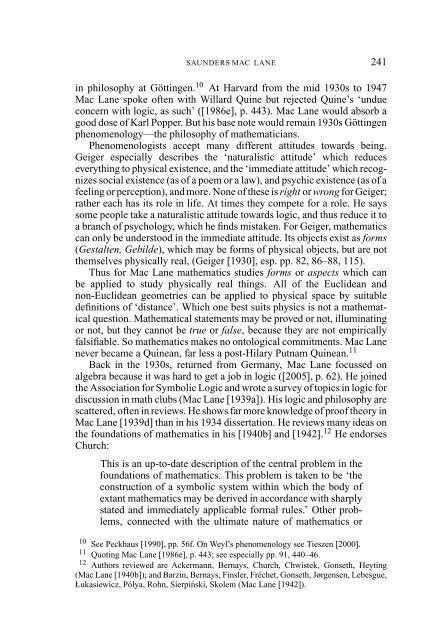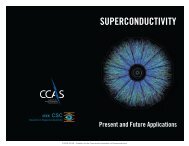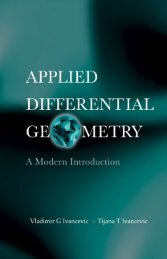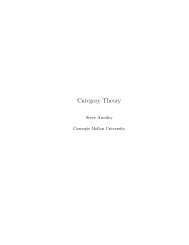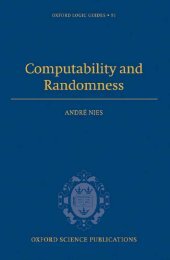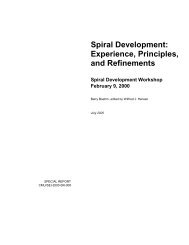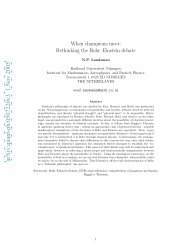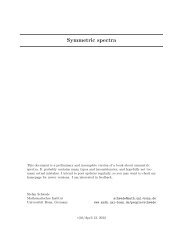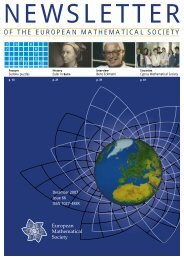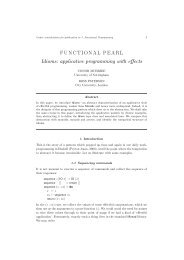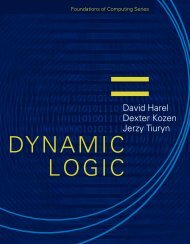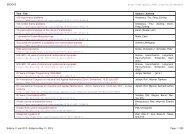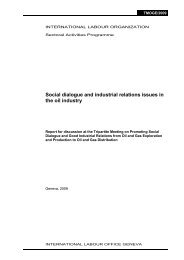PMeulogt MacLane
PMeulogt MacLane
PMeulogt MacLane
You also want an ePaper? Increase the reach of your titles
YUMPU automatically turns print PDFs into web optimized ePapers that Google loves.
SAUNDERS MAC LANE 241<br />
in philosophy at Göttingen. 10 At Harvard from the mid 1930s to 1947<br />
Mac Lane spoke often with Willard Quine but rejected Quine’s ‘undue<br />
concern with logic, as such’ ([1986e], p. 443). Mac Lane would absorb a<br />
good dose of Karl Popper. But his base note would remain 1930s Göttingen<br />
phenomenology—the philosophy of mathematicians.<br />
Phenomenologists accept many different attitudes towards being.<br />
Geiger especially describes the ‘naturalistic attitude’ which reduces<br />
everything to physical existence, and the ‘immediate attitude’ which recognizes<br />
social existence (as of a poem or a law), and psychic existence (as of a<br />
feeling or perception), and more. None of these is right or wrong for Geiger;<br />
rather each has its role in life. At times they compete for a role. He says<br />
some people take a naturalistic attitude towards logic, and thus reduce it to<br />
a branch of psychology, which he finds mistaken. For Geiger, mathematics<br />
can only be understood in the immediate attitude. Its objects exist as forms<br />
(Gestalten, Gebilde), which may be forms of physical objects, but are not<br />
themselves physically real, (Geiger [1930], esp. pp. 82, 86–88, 115).<br />
Thus for Mac Lane mathematics studies forms or aspects which can<br />
be applied to study physically real things. All of the Euclidean and<br />
non-Euclidean geometries can be applied to physical space by suitable<br />
definitions of ‘distance’. Which one best suits physics is not a mathematical<br />
question. Mathematical statements may be proved or not, illuminating<br />
or not, but they cannot be true or false, because they are not empirically<br />
falsifiable. So mathematics makes no ontological commitments. Mac Lane<br />
never became a Quinean, far less a post-Hilary Putnam Quinean. 11<br />
Back in the 1930s, returned from Germany, Mac Lane focussed on<br />
algebra because it was hard to get a job in logic ([2005], p. 62). He joined<br />
the Association for Symbolic Logic and wrote a survey of topics in logic for<br />
discussion in math clubs (Mac Lane [1939a]). His logic and philosophy are<br />
scattered, often in reviews. He shows far more knowledge of proof theory in<br />
Mac Lane [1939d] than in his 1934 dissertation. He reviews many ideas on<br />
the foundations of mathematics in his [1940b] and [1942]. 12 He endorses<br />
Church:<br />
This is an up-to-date description of the central problem in the<br />
foundations of mathematics. This problem is taken to be ‘the<br />
construction of a symbolic system within which the body of<br />
extant mathematics may be derived in accordance with sharply<br />
stated and immediately applicable formal rules.’ Other problems,<br />
connected with the ultimate nature of mathematics or<br />
10 See Peckhaus [1990], pp. 56f. On Weyl’s phenomenology see Tieszen [2000].<br />
11 Quoting Mac Lane [1986e], p. 443; see especially pp. 91, 440–46.<br />
12 Authors reviewed are Ackermann, Bernays, Church, Chwistek, Gonseth, Heyting<br />
(Mac Lane [1940b]); and Barzin, Bernays, Finsler, Fréchet, Gonseth, Jørgensen, Lebesgue,<br />
Łukasiewicz, Pólya, Rohn, Sierpiński, Skolem (Mac Lane [1942]).


